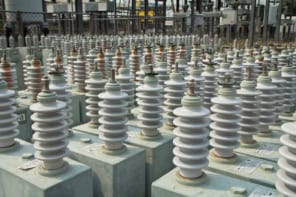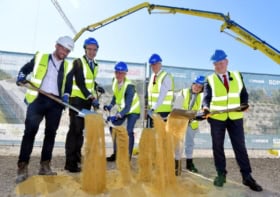
Government workers such as police officers and food safety inspectors are less active when temperatures are hotter, precisely the times when food and public safety are at most risk. That’s according to a team in the US who looked at data on police stops, food inspections, fatal vehicle crashes and food safety violations.
“Climate and weather impact all humans — including those in charge of assisting their fellow citizens,” says Nick Obradovich of MIT, US. “Adapting to climate change will require assessing the vulnerability of not only the public but also public sector workers to temperature related stressors and introducing adaptations where possible. Without adaptation, climate change might amplify the marginal gap between citizen need and government assistance.”
Cold and hot temperatures boosted the risks of a fatal crash and the incidence of food safety violations, the researchers found, but decreased police stops and food safety inspections. Rainfall, meanwhile, increased fatal crash risk but saw a drop in police stops.
“The regulatory activity of food safety inspectors and police officers declines due to the same temperatures that amplify the risks these regulators are tasked with overseeing,” says Obradovich. “These environmental factors could hinder the ability of governments to meet citizen needs at the time those needs are most amplified by the very same environmental factors.”
Obradovich and colleagues looked at historical data from more than 70 million regulatory police stops in the US from 2000 to 2017, half a million fatal vehicle crashes from 2001 to 2015, and nearly 13 million food safety violations discovered during over 4 million inspections from 2012-2016. The team also analysed temperature and precipitation records.
Examining annual temperature projections for 2050 and 2099 indicated that on average police officer stops will decrease in the south of the US and increase in the north, while fatal crash risk will increase most in the south. The trends were similar for food safety inspections and violations.
Over the course of the year, the team believes, future warming may boost regulatory oversight during cooler seasons, but diminish it during hotter seasons at the same time as amplifying hazards.
Obradovich has a background in political science; his previous research showed how temperature may alter human physical activity, sleep, and sentiment. “This work is an extension of those findings to examine their implications in the political arena,” he says. “Climate factors alter our well-being, and climatic changes are likely to dramatically alter our well-being in ways foreseen and unforeseen. This study adds one more area of potential concern to the list.”
Now the plan is to obtain similar data from other countries to investigate if the effects found in the US exist in other political and economic contexts. Obradovich is reluctant to extrapolate his results too far but believes that “to [the] extent these temperature-oversight effects exist in other countries, those countries with lower levels of political institutionalization, greater bureaucratic discretion, and lower levels of economic development (for climate adaptation purposes) might observe larger effects”.
The team reported the findings in PNAS.



